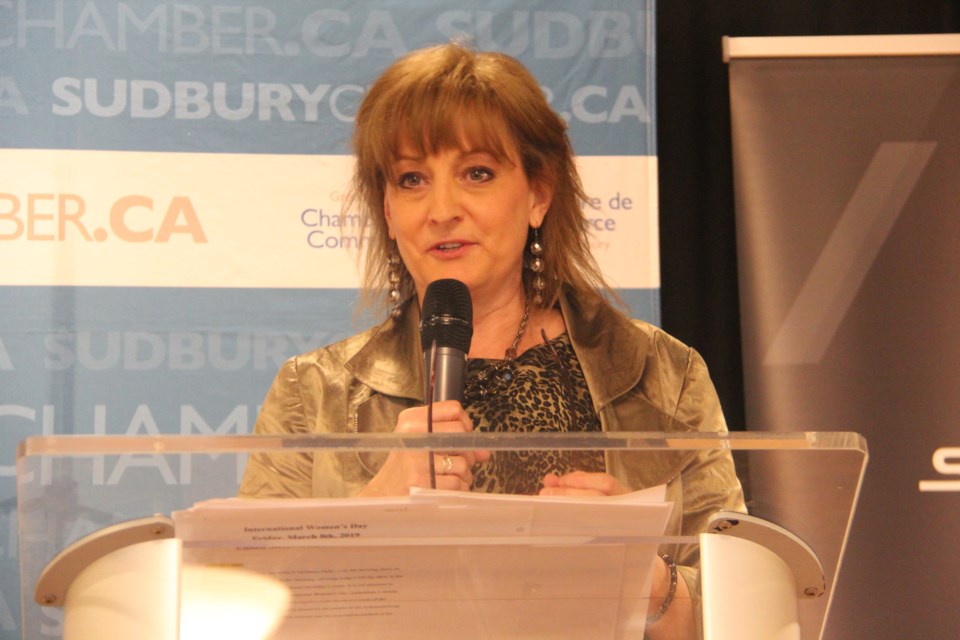For its annual International Women's Day breakfast March 8, the Greater Sudbury Chamber of Commerce invited Samantha Espley to speak about an industry in which women are still vastly underrepresented — mining.
About 16 per cent of the mining workforce in Canada is made up of women, said Espley, director of mining technology and innovation for Vale's base metals operation.
“It's about 47 per cent women representation in other industries,” said Espley, who's also president elect for the Canadian Institute of Mining, Metallurgy and Petroleum (CIM).
“We're way below. I think we're one of the worst in terms of representation compared to all other industries.”
At Vale, where there's been a concerted effort to attract women since the early 2000s – with incentives including maternity leave top-ups – it's a little better.
About 25 per cent of engineers and geologists in the company's Ontario operations are women.
“(Women are) a huge untapped human resource area, as well as aboriginal peoples, peoples with disabilities and members of visible minorities,” Espley said.
“It makes sense, right? A diverse workforce offers different perspectives for improved solutions and for improving the bottom line.”
Espley, whose father was a mining engineer by training, followed in his footsteps, graduating from the University of Toronto in 1988 and getting a job in her field at Falconbridge here in Sudbury.
Before 1960 — with the exception of the Second World War — women were not allowed to work in the mining industry, and they weren't allowed to work underground before 1978.
“I was so naive,” said Espley, who experienced things like having to go to another mine to change because there was no “dry” designated for women where she was working at the time.
“Honestly, when I walked in the door, there was no women. It was a sea of men. I was so shocked.”
Realizing the mining industry couldn't hire more women because there just weren't any “in the pipeline” getting the education to land those jobs, Espley advocated for young women to enter the industry.
In 1998, she was one of the founding members of Women in Science and Engineering Sudbury (WISE), which not only celebrates the achievements of women, but encourages the next generation to enter these fields.
The number of women in mining is “showing a steady increase,” she said. “More women are getting interested and joining the industry.”
A mother of three daughters and one son, Espley said she's proud three of her kids are now working in the mining industry. The fourth is still in school, “so there's still hope for her,” she said.
Speaking directly to the crowd at the International Women's Day breakfast at the Steelworkers Hall, which was largely female, Espley encouraged them to be leaders in their own industries, whatever that might be.
“Wherever you go, reach out to others, be a mentor,” she said. “Talk to students and colleagues. The recipe is really simple.”
Greater Sudbury Chamber of Commerce CEO Debbi Nicholson said she invited Espley to speak not only because she's a leader, but because she's a champion of girls entering STEM (science, technology, engineering and math) careers.
“She is an absolutely dynamic woman,” she said.
Nicholson said it's important to mark International Women's Day to celebrate the varied contributions women make to society.
That can be in the work world, as exemplified by Espley, but it could also be providing child or elder care within your own family, which are also valuable contributions, she said.
“I think it's endless,” Nicholson said.
